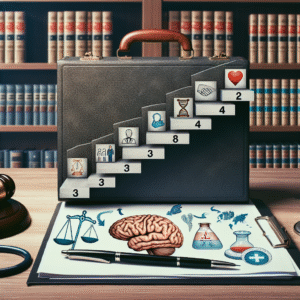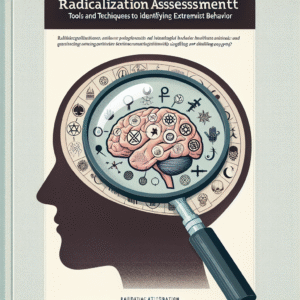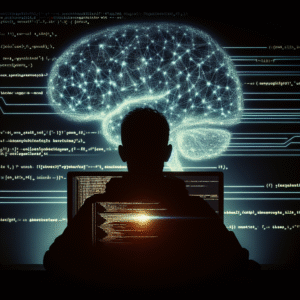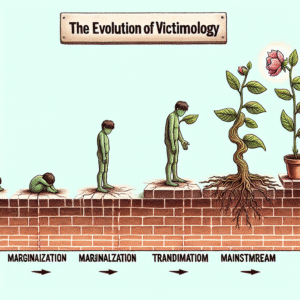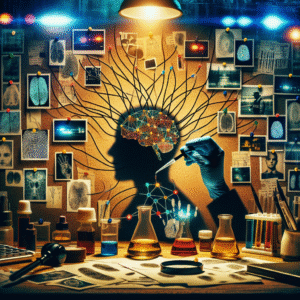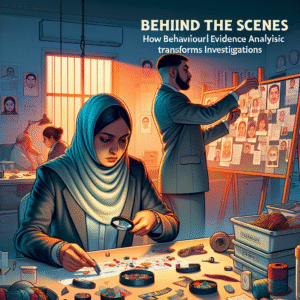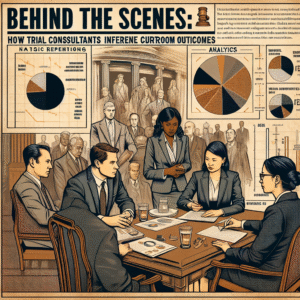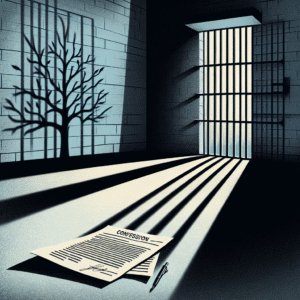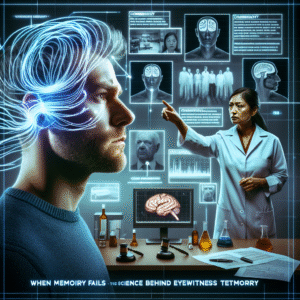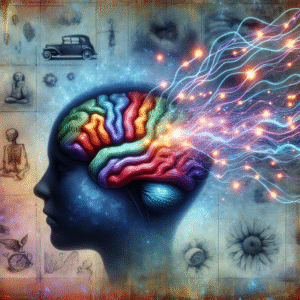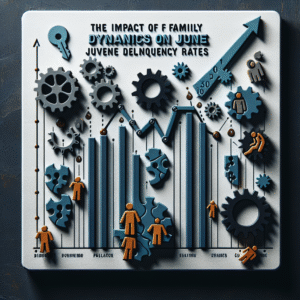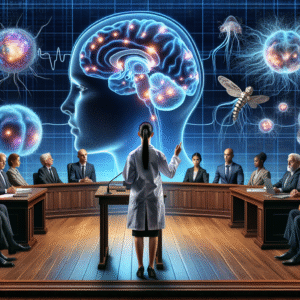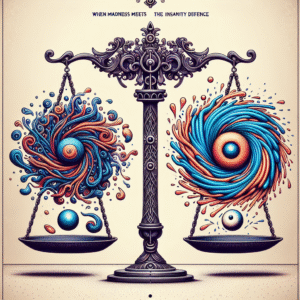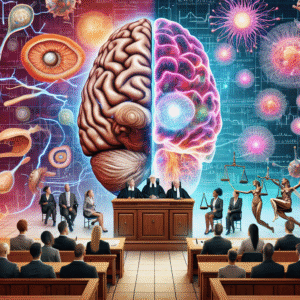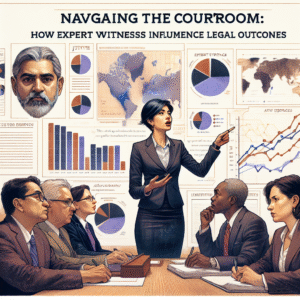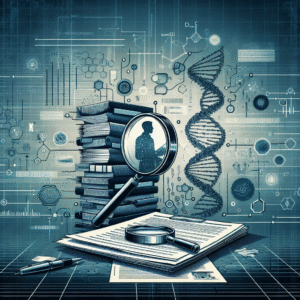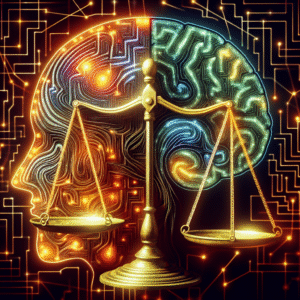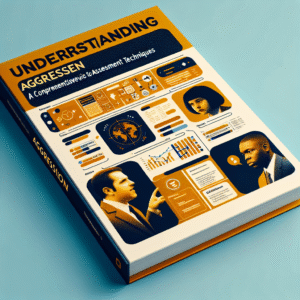Introduction In the world of legal litigation, expert witnesses often serve as the linchpin between complex technical realities and the courtroom’s demands for clarity. Whether it’s in a high-stakes corporate lawsuit, a criminal trial, or a personal injury case, the role of an expert witness is crucial. Their insights can turn the tide of a case, making it essential...
Forensic Psychology
forensic psychology
Introduction Brain injuries can drastically change lives, bringing with them challenges that extend beyond physical healing. Understanding the legal process for claiming compensation can feel daunting—an overwhelming maze of law, paperwork, and negotiation. This guide, Unpacking the Legal Process for Brain Injury Claims: A Step-by-Step Guide, aims to demystify this complex terrain. By breaking it down into manageable steps,...
Introduction In a world increasingly focused on prevention and rehabilitation, the topic of sex offender rehabilitation is both vital and controversial. As societal awareness of sexual crimes grows, so too does the challenge of effectively reintegrating offenders into the community. The narrative around sex offenders is often dominated by fear and distrust, but it’s essential to shift this perspective....
Introduction In a world fraught with unpredictability, hostage situations remain one of the most harrowing crises law enforcement and special operations teams face. The stakes are undeniably high—lives hang in the balance, tensions run intense, and decisions must be made quickly. At the core of these high-pressure scenarios lies a crucial element: effective communication. Holding the Line: How Effective...
Introduction In a world where silence often becomes a refuge for the abuser and a burden for the victim, the need for effective strategies in domestic violence assessment has never been more crucial. "Breaking the Silence: Key Strategies for Domestic Violence Assessment" offers a roadmap for professionals, advocates, and individuals seeking to address this pervasive issue. Engaging with this...
Introduction In today’s complex world, the rise of extremist behaviors poses significant challenges to societies globally. Understanding the process of radicalization—how individuals move toward extremist ideologies—is crucial for effective prevention and intervention. Thus, Radicalization Assessment: Tools and Techniques for Identifying Extremist Behavior has become an essential area of focus for governments, law enforcement, educators, and community leaders. This article...
Introduction Navigating the world of child custody can be one of the most daunting experiences for parents facing separation or divorce. Understanding the Child Custody Evaluation Process: What to Expect is crucial not only for alleviating anxiety but also for ensuring that you can advocate effectively for your child’s best interests. This comprehensive guide will provide you with valuable...
Introduction In a world increasingly shaped by conflict, understanding the forces that drive individuals toward terrorism is more crucial than ever. At the heart of this dark phenomenon lies a complex interplay between ideology and psychology. The Role of Ideology in Terrorist Motivation: A Psychological Analysis explores the intricate motivations behind terrorism, illuminating how ideological frameworks can transform ordinary...
Introduction: Unraveling the Truth In the high-stakes world of criminal investigations, the race to uncover the truth often hinges on the ability to extract accurate information from witnesses and suspects. Within this complex landscape, forensic interviewing stands out as a foundational technique, often described as the secret weapon that investigators wield to piece together the puzzle of a crime....
Introduction In our ever-evolving digital world, the rise of cybercrime has taken center stage, becoming a pressing issue that affects individuals, businesses, and governments alike. The term "hacker" often conjures images of hooded figures tapping furiously on keyboards in dark rooms, but the reality is far more complex. Understanding the phenomenon of cybercriminality calls for deeper introspection into the...
Introduction Victimology, the study of victims and their role in the criminal justice system, has undergone an astonishing transformation over the last few decades. Once relegated to the shadows of criminology, the field has emerged as a critical discipline that shapes policy, informs social justice movements, and empowers those affected by crime. The evolution of victimology—from marginalization to mainstream...
Introduction Imagine a world where law enforcement can predict criminal behavior before it happens, simply by analyzing geographic patterns. A tool that can dissect the complexities of crime through data and reveal the potential for future incidents is known as geographic profiling. In today’s interconnected, fast-paced society, understanding the geography of crime is not only relevant but essential. This...
Introduction In an ever-evolving world where crime constantly adapts and grows more sophisticated, understanding the psychology behind criminal behavior has never been more crucial. The realm of law enforcement is embracing a powerful tool: behavioral analysis. The science behind crime is not just about gathering evidence; it’s about comprehending the motives, patterns, and psychological profiles behind criminal acts. This...
Introduction In an age where technology and human behavior intertwine more than ever, understanding the nuances of human psychology can be the key to unlocking complex investigations. Behind the Scenes: How Behavioral Evidence Analysis Transforms Investigations delves into the fascinating realm of behavioral evidence analysis, revealing how insights gleaned from human behavior can shape investigative outcomes. Imagine a crime...
Introduction Have you ever wondered what happens behind the courtroom doors that might sway a jury’s decision? The art of persuasion in legal cases is not solely in the hands of lawyers; a cadre of professionals called trial consultants plays a pivotal role in shaping courtroom narratives. In this in-depth exploration, we delve into "Behind the Scenes: How Trial...
Introduction In today’s fast-paced work environment, ensuring the safety and well-being of employees is more critical than ever. Creating a Safe Workspace: How to Recognize and Address Workplace Violence is not just a matter of compliance; it’s a foundational element that fosters a positive workplace culture and enhances productivity. Workplace violence can manifest in various forms, from verbal threats...
Introduction Imagine standing in a courtroom where the stakes are high: lives, reputations, and massive financial consequences hang in the balance. The role of a juror in such cases is monumental, yet the process that determines who gets to decide these critical outcomes often unfolds like a closely guarded secret. In this exploration of Behind the Curtain: How Jurors...
Introduction In today’s rapidly evolving workplace, ensuring safety and productivity is paramount. However, balancing these needs with employee rights can be a complex endeavor. The concept of Fitness For Duty Evaluations: Balancing Employee Rights and Workplace Safety plays a crucial role in navigating this delicate equilibrium. These evaluations not only assess an employee’s ability to perform job duties safely...
Introduction Every day, police officers around the world confront situations that would overwhelm most of us. From witnessing traumatic events to engaging in high-stress encounters, the job of a police officer comes with a uniquely challenging set of circumstances. Unfortunately, still prevalent in society is a stigma around mental health, particularly in the field of law enforcement. The psychological...
Introduction Imagine being in a situation where every word you say could forever alter your future, yet the very rights meant to protect you are lost amidst the chaos of an interrogation room. Miranda Competence Explained: Navigating Rights in Interrogation Settings is essential for understanding your rights during police questioning. This article aims to demystify Miranda competence, elucidate the...
Introduction In a world inundated with misinformation, the ability to discern truth from lies has never been more critical. "Beyond Body Language: Advanced Techniques in Lie Detection" serves as a guide for professionals ranging from law enforcement to corporate leaders, helping them navigate the complex landscape of human communication. The subtleties of verbal cues, psychological insights, and the science...
Introduction Behind closed doors, the intense world of police interrogation unfolds. It’s a setting filled with high stakes, psychological maneuvers, and the pressing urgency of justice. In an age where true crime fascinates and fear of wrongful convictions looms large, understanding the science behind police interrogation is more crucial than ever. This exploration, “Behind Closed Doors: The Science of...
Introduction Imagine waking up one day to find yourself behind bars for a crime you didn’t commit—a nightmare too often lived by innocent individuals. Behind Bars: The Devastating Impact of False Confessions on Innocent Lives uncovers the dark reality of false confessions and their far-reaching consequences. These confessions can turn lives upside down, tearing apart families and eroding trust...
In an era defined by experiences, events are not just gatherings; they are powerful narratives that, when executed correctly, can leave lasting impressions. Whether you are organizing a corporate seminar, a wedding, or a festival, understanding the intricate details involved in event planning is crucial. This is where The Ultimate Lineup Playbook: Best Practices for Event Success comes into...
Introduction Imagine standing in a courtroom, watching the defendant meticulously described by an eyewitness—their confident testimony seemingly solid. Yet, crucial details may be flawed, or worse, completely fabricated. When Memory Fails: The Science Behind Eyewitness Testimony explores the intricate dynamics of human memory, highlighting its susceptibility to distortion and leading us to question the reliability of one of the...
Introduction Imagine recalling a cherished memory, only to discover that it’s been altered slightly—or dramatically—by external factors. This isn’t a mere figment of your imagination; it’s a psychological phenomenon that affects everyone, often without our awareness. The phenomenon of memory contamination—the way in which external influences shape our recollections—holds profound implications for our understanding of memory itself. In a...
Introduction In today’s rapidly changing world, the family remains a cornerstone of societal structure, influencing the development and behavior of its members, especially children. At the heart of social issues like juvenile delinquency lies the intricate relationship between family dynamics and a youth’s inclination toward criminal behavior. Understanding The Impact of Family Dynamics on Juvenile Delinquency Rates is essential...
Introduction Imagine a courtroom filled with tension, where every word matters, and justice hangs in the balance. Now picture a child, small and innocent, recounting a traumatic experience. Their testimony could shape the outcome of a trial, but how reliable is their perception of events? "Seeing Through Innocent Eyes: The Science of Child Witness Reliability" explores this critical question....
Introduction In a world where understanding human behavior is becoming increasingly essential, the exploration of psychopathy is both fascinating and critical. Individuals diagnosed with psychopathy often exhibit a unique blend of charm, intelligence, and manipulation, leading us to ponder: how do experts evaluate this complex personality disorder? In this article, we will delve deep into the intricacies of psychopathy...
Introduction Imagine a life altered in an instant—a moment of trauma that changes everything. Whether it’s a car accident, a sports injury, or a fall, the aftermath can be devastating. As we delve into The Aftermath of Trauma: Understanding Brain Injury Legal Cases, we explore not only the impact of brain injuries on victims and their families but also...
Introduction In today’s fast-paced and unpredictable world, the ability to identify, assess, and manage risks is not just a necessity for businesses; it’s a fundamental skill that influences success and sustainability. “Risk Assessment 101: Understanding the Foundations of Risk Management" delves into the essential concepts that underpin effective risk management strategies. Whether you are a seasoned professional or just...
Introduction Imagine a courtroom where the very fabric of justice is woven with the threads of neuroscience. This is not a futuristic fantasy but a present-day reality where the intersection of neuroscience and law is reshaping legal outcomes. The phrase "Neuroscience Meets the Courtroom: The Impact of Forensic Neuroimaging on Legal Outcomes" encapsulates a transformative movement that could redefine...
Introduction Imagine a courtroom where the scales of justice balance precariously between sanity and insanity. The insanity defense represents one of the most controversial aspects of the legal system, challenging our perceptions of culpability and moral responsibility. When Madness Meets Justice: The Complexities of the Insanity Defense takes center stage in legal, psychological, and societal discussions. This intricate web...
Introduction In a world where the intersection of science and law is becoming increasingly relevant, the phrase "Brain Science Meets the Courtroom: Neuropsychological Insights in Legal Cases" emerges as a beacon of understanding. Imagine a courtroom where the immutable laws of human behavior are informed by the fascinating intricacies of the brain. As we dive deeper into the complexities...
Introduction In today’s rapidly evolving business landscape, organizations must prioritize employee development more than ever before. The key to unlocking potential lies in "Assessing Skills: How Competency Evaluations Shape Employee Development." This strategic approach ensures that employees are not only equipped with the necessary skills but are also positioned for growth within their careers. As companies strive for a...
Introduction In a world where mental health struggles are often brushed aside, the need for a deeper understanding has never been more pressing. "Beyond the Surface: How Psychological Autopsies Illuminate Mental Health Issues" explores a powerful tool that sheds light on the silent battles many face. This examination reveals critical insights into mental health, guiding families, professionals, and policymakers...
Introduction In the intricate tapestry of the legal system, expert witnesses serve as crucial threads, weaving together the facts, complexities, and nuances of various cases. Navigating the Courtroom: How Expert Witnesses Influence Legal Outcomes is not just about understanding legal jargon—it’s about grasping the pivotal role these specialized individuals play in shaping judicial decisions. As trials become more sophisticated,...
Introduction In the realm of law, the focus typically lingers on tangible evidence, witness testimonies, and the mechanics of legal proceedings. However, there exists an often-overlooked element that can significantly influence the outcomes of trials and legal disputes: post-traumatic stress disorder (PTSD). As a psychological condition that can dramatically affect a person’s mental state and behavior, PTSD emerges as...
Introduction In today’s complex society, the intersection of science and law has never been more critical. The forensic landscape has evolved dramatically, with forensic assessment emerging as a pivotal component in modern investigations. This not only aids in solving crimes but also plays a key role in ensuring justice in our legal system. As we delve into the nuances...
Introduction In a world increasingly aware of mental health, understanding the nuances of trauma is paramount. Trauma shapes lives, sometimes in subtle ways, often overlooked in traditional assessments. The Importance of Trauma Assessment in Mental Health: Getting it Right serves not only as a guiding principle for mental health professionals but also as a vital message for anyone navigating...
Introduction In the intricate dance of crime investigation, the shadows cast by uncertainty can often obscure the path to justice. Yet, beyond the crime scene lies a powerful tool: criminal profiling. This essential discipline transforms abstract hints into concrete leads, helping law enforcement agencies piece together the enigmatic puzzle of criminal behavior. In this comprehensive exploration of Beyond the...
Introduction Capital punishment is one of the most polarizing topics in the landscape of criminal justice. It evokes passionate arguments both for and against its use, often entwined with ethical considerations, historical context, and its perceived effectiveness in deterring crime. As society grapples with questions of morality and justice, understanding capital punishment—analyzing its impact on crime rates and justice—is...
Introduction In a world saturated with information, the ability to perceive reality accurately is more crucial than ever. Unmasking cognitive bias is essential for professionals involved in investigative work, including law enforcement, journalism, and research. Biases can cloud judgment, distort facts, and ultimately, lead to faulty conclusions. This article explores how our perceptions influence investigative outcomes, aiming to equip...
Introduction In an era where the justice system often prioritizes punitive measures over rehabilitation, the rising conversation around sentencing mitigation reveals a vital pivot in how we understand crime and punishment. Beyond Punishment: The Role of Sentencing Mitigation in Modern Justice Systems not only explores innovative approaches to justice but also challenges entrenched norms that have historically favored retribution....
Introduction In a world where uncertainty and sudden crises can occur at any moment, the ability to negotiate effectively during such times is invaluable. Mastering the Art of Crisis Negotiation: Strategies for Success is not only a skill but also a necessity for leaders in various fields—be it law enforcement, business, or even personal life. When emotions run high...
Introduction In an age where safety is paramount, understanding violence risk appraisal has become essential for communities, organizations, and individuals alike. With incidents of violence impacting lives globally, pinpointing the potential for harm helps in taking preemptive measures. But what makes this understanding so crucial? How can organizations effectively assess and predict potential threats? This article delves into "Understanding...
Introduction In the intricate world of criminal investigations, few topics ignite as much intrigue and concern as homicide cases. The phrase “Cracking the Code” speaks to the relentless pursuit of truth, where detectives, forensic experts, and the community collaborate to unveil the mysteries behind violent crimes. In [City/Region], an alarming rise in homicide rates has placed law enforcement and...
Introduction In an increasingly digital world, where information breaches and cyber threats loom large, understanding the landscape of cybersecurity is paramount. "Assessing Risks: The Essential Role of Threat Assessment in Cybersecurity" not only underscores the importance of identifying vulnerabilities but serves as a beacon for organizations striving to secure their digital assets. As cybercriminals grow more sophisticated, the need...
Introduction Stalking is a serious issue that can leave lasting psychological and emotional scars. Despite its prevalence, many people remain unaware of the signs and implications of stalking, making it critical to help individuals recognize and address the problem effectively. In this comprehensive guide, we aim to empower readers by providing valuable insights into Understanding Stalking: Recognizing the Signs...
Introduction In the world of forensics, the ability to convey complex information clearly and effectively can make all the difference in a legal situation. Forensic report writing is not just about documenting findings; it’s about translating intricate scientific data into a format that can be easily understood by judges, juries, and law enforcement professionals. If you’ve ever wondered how...
Introduction In today’s fast-paced world, the ability to discern truth from falsehood is more crucial than ever. Whether in legal settings, the medical field, or workplace environments, the ramifications of malingered claims can be profound and costly. Unmasking Deception: Innovative Techniques for Detecting Malingering is not just an intriguing title—it’s a call to action for professionals across various domains....
Introduction In a world that is becoming increasingly interconnected, the fabric of society is woven with diverse cultural threads. This diversity, while a source of strength, can also pose significant challenges, particularly in the realm of forensic investigations. Bridging the gap: The importance of cultural competence in forensic investigations is not just a theoretical concept; it is a practical...
Introduction Imagine a world where the secrets of the human mind could be unlocked to understand why individuals commit heinous acts. The exploration of the psyche behind criminal offenses is not only a fascinating journey but also a critical area of study with profound implications for law enforcement, psychology, and society as a whole. "Understanding the Mind: Unraveling the...
Introduction In the intricate world of forensic psychology, professionals often find themselves on a precarious tightrope, balancing the demands of justice with the imperative to uphold ethical standards. "Navigating the Fine Line: Ethical Dilemmas in Forensic Psychology Practice" encapsulates the essence of this struggle. As forensic psychologists, individuals are required to serve the legal system while ensuring the mental...
Introduction Aggression is a multifaceted construct that often troubles both individuals and communities. It can manifest in various forms, impacting relationships, workplaces, and even entire societies. Understanding aggression is vital for psychologists, educators, and anyone interested in human behavior. In this comprehensive guide—Understanding Aggression: A Comprehensive Guide to Assessment Techniques—we delve into the complexities of aggressive behavior, exploring effective...
Introduction In an era where the justice system is increasingly scrutinized for its effectiveness and fairness, new paradigms are essential. One such paradigm is Redefining Justice: The Role of Mental Health Courts in Rehabilitation. These courts serve as a beacon of hope for individuals grappling with mental health issues, diverting them from the traditional penal system toward treatment and...
Introduction In the labyrinthine world of corrections, the path to rehabilitation often feels daunting. Yet, behind the walls of prisons and correctional facilities lies a team of unsung heroes: correctional psychologists. These specialists delve deep into the minds of inmates, wielding the power of understanding and empathy to foster change. The role of correctional psychologists is not merely about...
Introduction In today’s world, families face numerous challenges, and one of the most distressing can be the issue of substance abuse. Understanding how to navigate substance abuse evaluations is essential for families seeking to support loved ones struggling with addiction. Navigating Substance Abuse Evaluations: A Comprehensive Guide for Families aims to clarify this complex process, offering vital insights and...
Introduction Imagine a memory so vivid it feels like reality—a child’s birthday, a family vacation, or even a traumatic event. Now imagine discovering that this cherished memory is entirely fabricated. Welcome to the world of false memories, where the mind can play tricks that alter our perception of reality. The Psyche’s Mirage: Understanding False Memory Syndrome dives deep into...
Introduction Navigating the justice system is a journey marked not only by legal complexities but also by the art of decision-making that shapes the outcomes of cases. Understanding how decisions are made within this framework can empower individuals, demystify legal processes, and even inspire confidence in those seeking justice. By unpacking the nuances of legal decision-making, we aim to...

